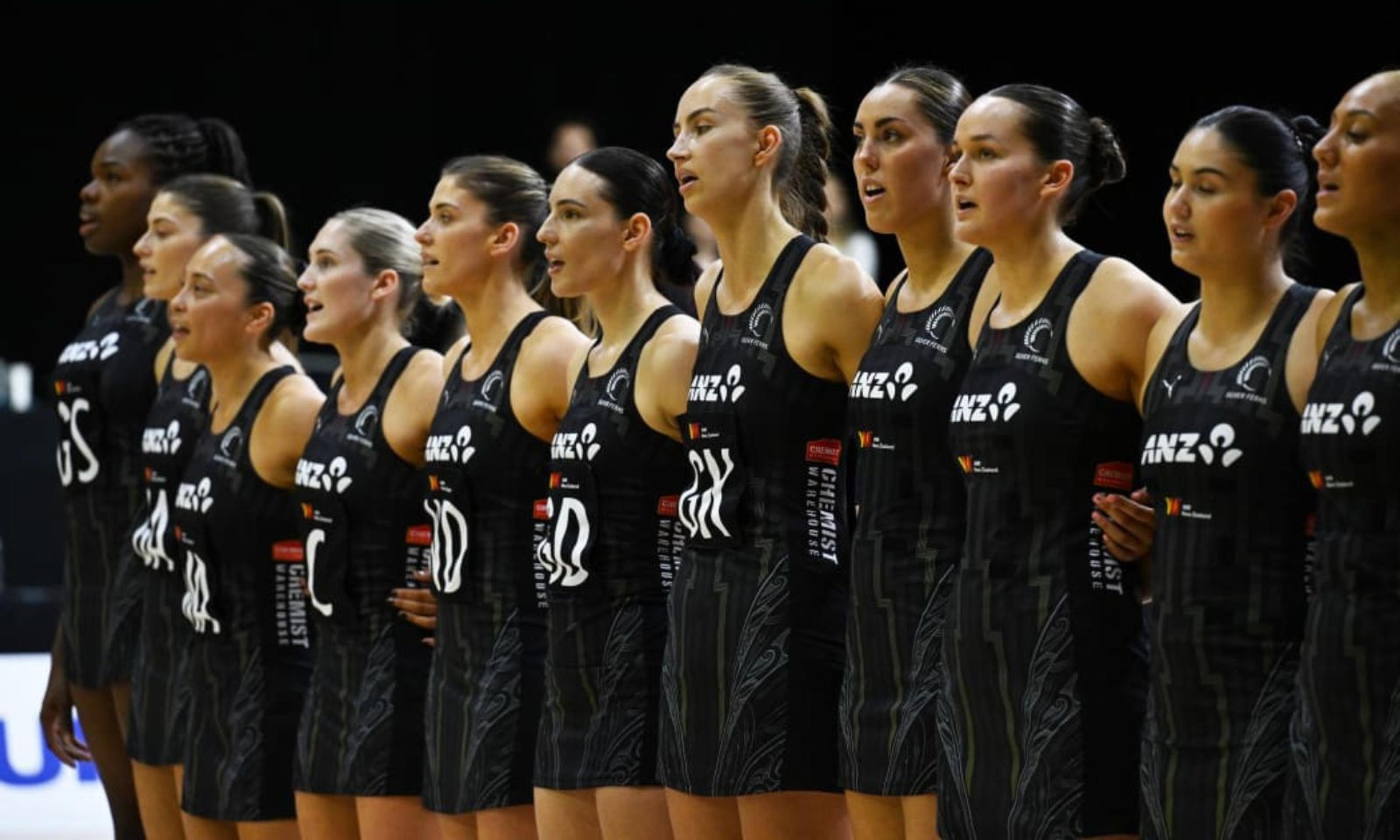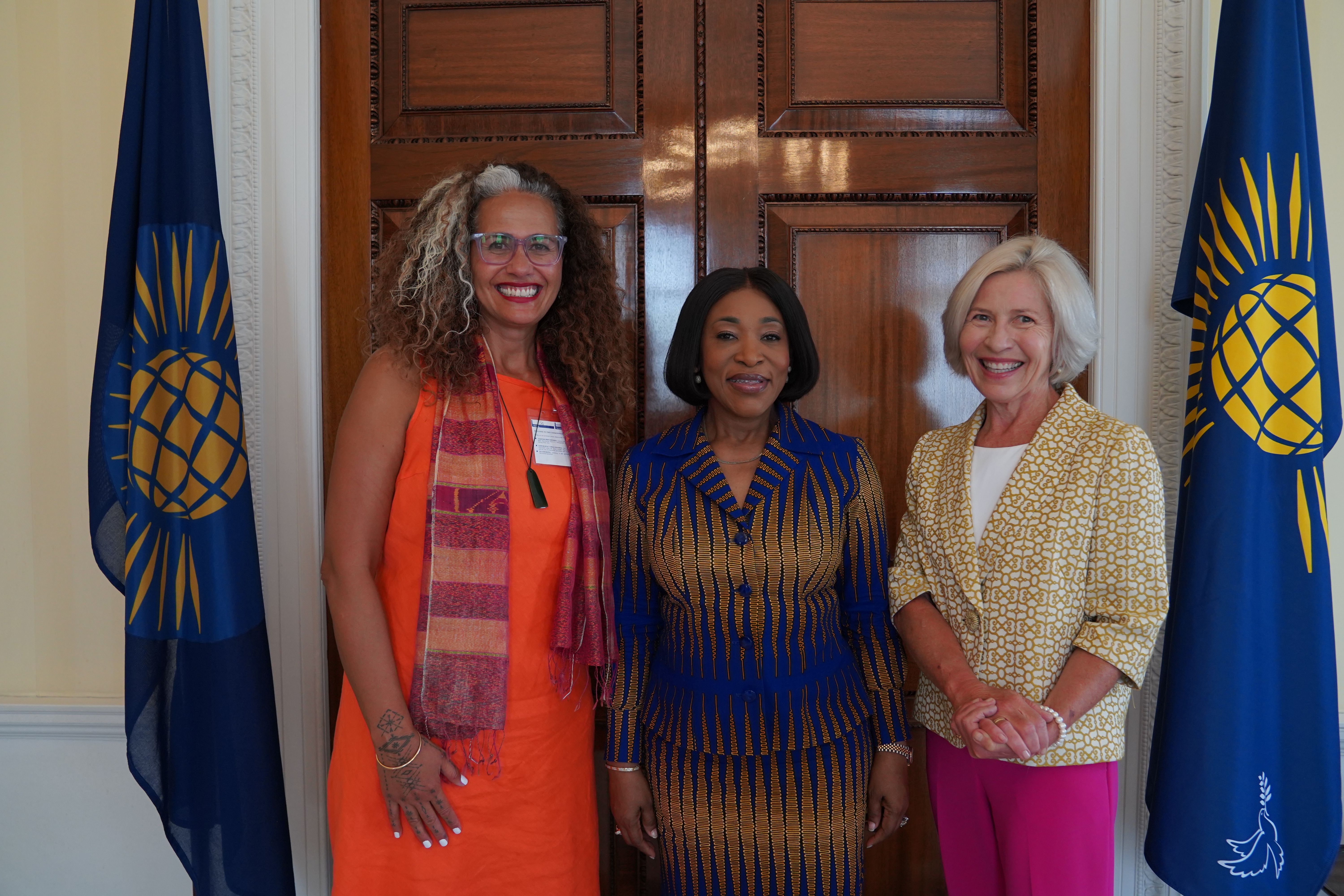

Poet and academic Selina Tusitala Marsh is the world's first Commonwealth Poet Laureate
Photo/Mark Chilvers/commonwealthfoundation.com
Selina Tusitala Marsh becomes first Poet Laureate for the Commonwealth
The New Zealand academic is embracing her new role to share histories and promote understanding through the power of poetry.



US funding cuts threaten to 'dry up' future of Pacific scientists - expert


Immigration reassesses toddler's declined visa request as Children's Commissioner steps in


Inked across lands: How Pacific tattoo art is thriving in Germany

US funding cuts threaten to 'dry up' future of Pacific scientists - expert


Immigration reassesses toddler's declined visa request as Children's Commissioner steps in
New Zealand poet and academic Selina Tusitala Marsh has been appointed as the first Poet Laureate of the Commonwealth.
The prestigious role allows her to represent 56 nations and 2.7 billion people through her poetry.
Known for her ability to use words to heal, inspire, and connect people of all ages, Marsh brings a unique Pacific perspective to her new position.
In her own words, she feels honoured to take on this role, reminding us that, “In Sāmoan, we say ‘O le tele o sulu e maua ai figota’, the more torches we have, the more fish we can catch. Poetry is our torch, illuminating paths between our diverse cultures and histories.”
As the Commonwealth Poet Laureate, she will write original poems for major events, including Commonwealth Day, and participate in the 2026 Heads of Government Meeting.
At a ceremony in London, Dr Anne Gallagher, head of the Commonwealth Foundation, says the power of poetry promotes justice, understanding, and hope.
She praised Marsh for her ability to connect communities and global audiences through her words.
“Selina Tusitala Marsh embodies that truth. Her poetry travels effortlessly from the smallest community to the global stage.”

Selina Tusitala Marsh (left) is appointed to the position by Commonwealth Secretary-General Shirley Botchwey and Commonwealth Foundation Director-General Dr Anne Gallagher (right). Photo/Supplied
The controversy of a colonial past
Marsh is aware of the historical complexities surrounding the Commonwealth and doesn’t shy away from addressing this.
“It's founded on really violent roots of colonialism. We're all connected by having been formerly colonised by the British Empire and its affiliates.”
Her inaugural poem, Uncommon Banyan, uses the banyan tree as a symbol of growth and shared struggles among nations:
Uncommon Banyan
Aerial roots dropped and branched to soil
Each trunk a nation in shared toil
“The banyan tree is an organism that chokes its indigenous host and then grows up and out through it, and then the banyan itself becomes this huge, beautiful, organic, holistic organism which is full of life. So that's how I see our Commonwealth.”
Her latest graphic memoir, Mophead 2, reflects on her journey, including the criticism she faced when she accepted the Commonwealth Poet title in 2016. “It hurt. But I turned it into a story.”
Watch Selina Tusitala Marsh speaking about her Mophead books below.
Ancestry tapestry
Marsh is also proud of her mixed heritage, which includes Sāmoan, Tuvaluan, English, Scottish, and French roots. She honours her family, especially her mother, whose story of migration and resilience greatly influences her work. Her mother learned to speak English from TV soap operas, supported an extended family, and this is central to Marsh’s creative identity.
“She was a formidable force. She’s the Tusitala line. Through mum, then through my grandfather, it’s that one line that has inspired me and shown me where I come from, so I know where I’m going.”
Marsh sees her role as one of connection rather than division. “The last three letters of my name, ‘Ala,’ mean bridge, trail, path. I’m the in-between person. That’s my role.”
Poetry for everyone
Marsh believes that poetry should be accessible to everyone, and she aims to bring it into schools and local communities.
“My poems are accessible, my poems reach into people’s hearts and use the common language. It’s part of that spoken word, oral tradition that we have.”
Looking ahead
Now on a break from her teaching position at the University of Auckland, Marsh is working on a long-awaited book about the first 21 Pacific women to publish poetry in English, and make their work available in schools.
Marsh believes poetry is more than just words on a page. It’s deeply woven into the fabric of life and culture.
“For me, poetry is in the weave of a fala because it talks in the language of symbols, that's how poetry behaves, poetry is in the stitching of a tivaevae.”
One of her exciting dreams is to create a “poetry quilt” for the Commonwealth, featuring 56 squares, one from each member nation, with lines from their poets. “We digitise this quilt, turn it into an audio poem, and ideally, a material quilt too, one that becomes the unofficial flag of the Commonwealth. One that’s truly representative of our 56 nations.”
When asked what message she aims to share as Poet Laureate, Marsh simply says, “I woke up from a dream and the phrase love lifts surfaced. That’s what I’ll do … love always lifts.”